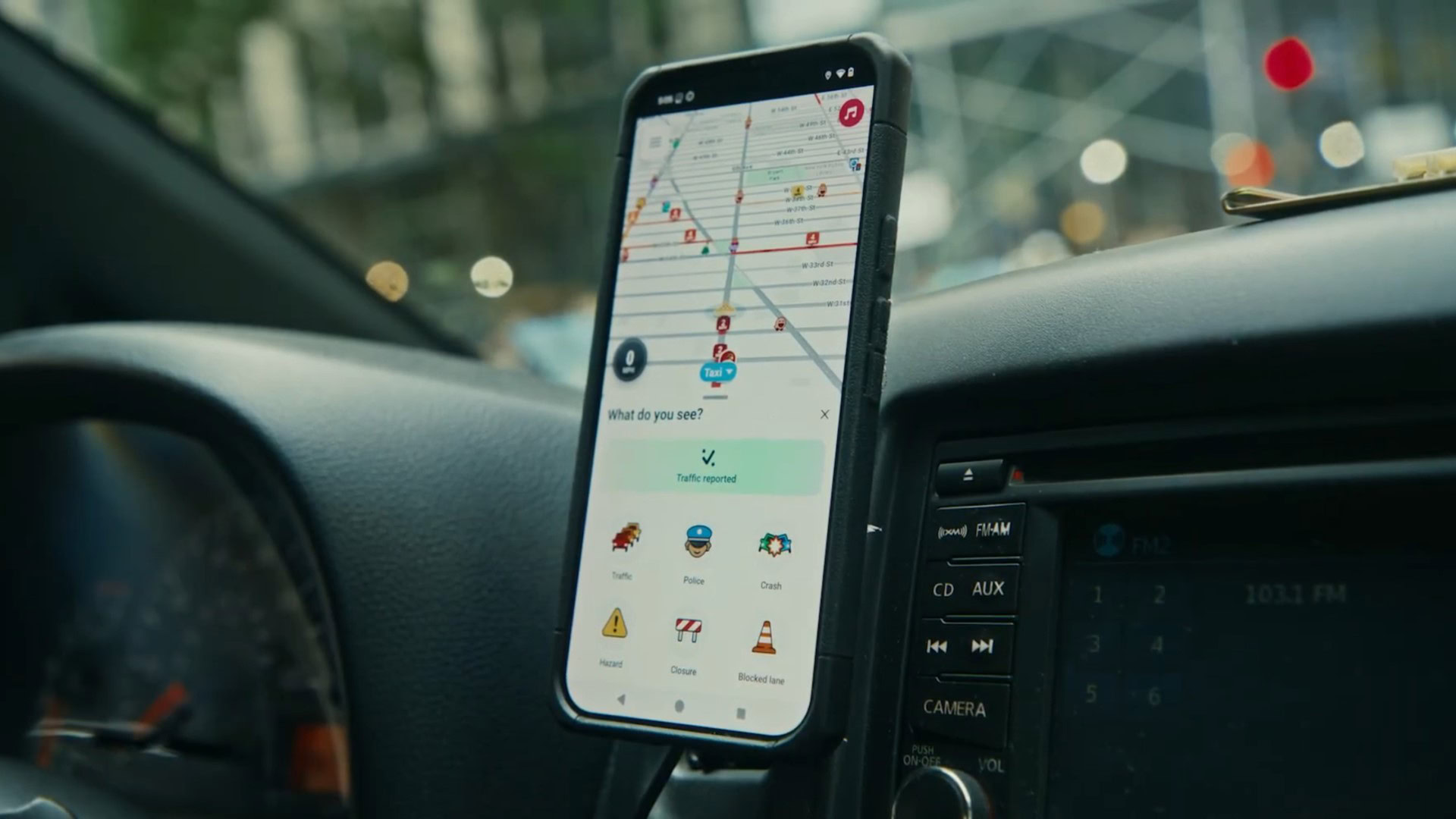Affiliate links on Android Authority may earn us a commission. Learn more.
Submitting Waze reports is becoming as easy as saying, 'man, this traffic sucks'
Published onOctober 31, 2024
- Conversational Reporting will let you submit road reports using Gemini to process your voice input.
- The system does not require any specific syntax, and can ask follow-up questions for more detail.
- Waze is also looking to improve safety with school zone alerts.
It’s something of a small miracle that Waze hasn’t just managed to continue existing in the decade-plus since Google acquired the app, but that it’s actually managed to thrive. All too often, Google acquisitions are digested and merged with the company’s existing offerings, and yet Google Maps and Waze continue to both succeed, side-by-side. Today we’re learning about a bunch of updates coming to Google Maps, including some expanded reporting tools for weather-related incidents. But Maps is not about to steal Waze’s incident-reporting thunder, as Waze itself picks up a powerful new feature in the form of Conversational Reporting.
Waze is only as useful as the reports feeding it info make it, so the app is always interested in that process being as streamlined as possible. So far, though, there hasn’t been a great way to do make reports without pulling over first to safely use your phone. While Waze formally supports Google Assistant voice input, we’ve seen lots of comments from users struggling to get this to work correctly, and even then, submitting reports requires users are aware of the correct syntax.

Conversational Reporting exists to fix all that. The idea is that AI is pretty darn powerful these days, and Google’s Gemini model is more than capable of parsing your casual description of an issue with a road. All you’ll have to do is tap the app’s reporting button like before, but now you can just something like, “traffic is all messed up around here.” That’s enough to get Gemini started, using your position to fill in the blanks, and if it does need a little more detail to narrow down what sort of problem you’re talking about, it can come right back at you with follow-up questions.
Being able to do all this with your voice, and better yet, not requiring you to remember specific reporting language, sounds like a major usability and safety win for Waze. Just by lowering the bar for reporting incidents, we wouldn’t be surprised if a lot more users start submitting them — and more often. And that just makes the app better for everyone.
In addition to Conversational Reporting, we’re learning about some tweaks Waze is implementing that will display school zones on your map, helping you keep an eye out for kids. That should get started on both Android and iOS a little later this year. Conversational Reporting’s roll out is going to be a little more complicated, and while it’s debuting with English support this week, that’s only going to be for a limited group of testers. Google says it plans to expand that to more users and more languages over the next few months.